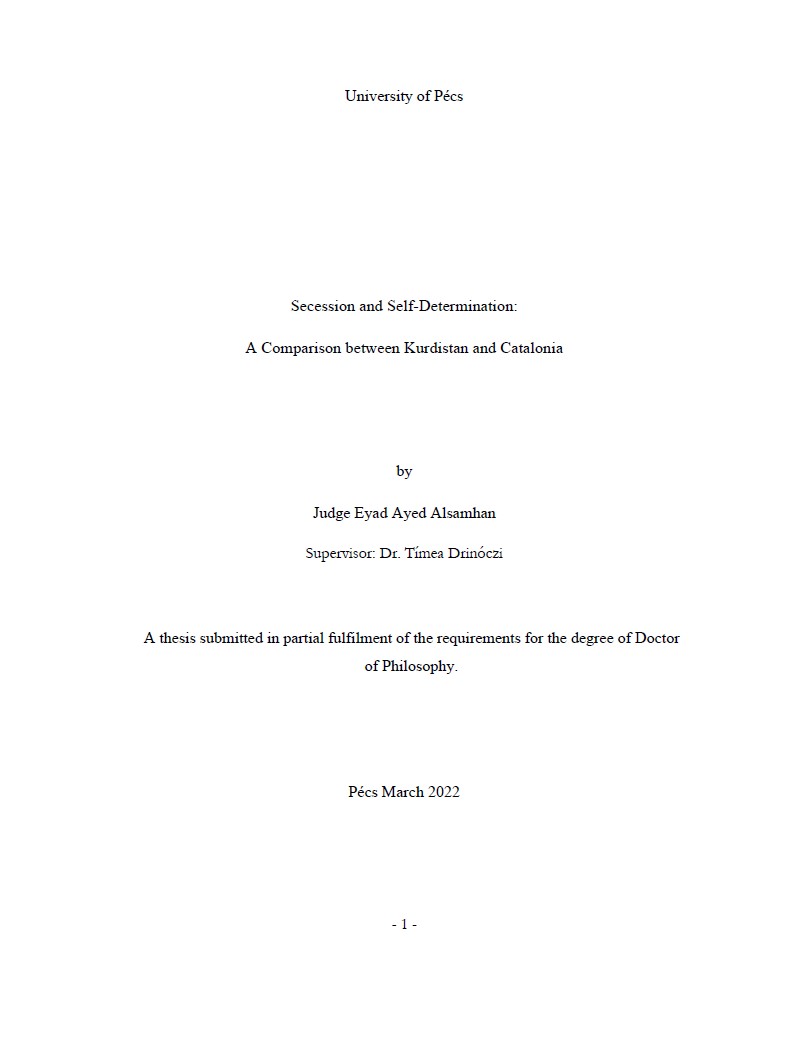Secession and Self-Determination: A Comparison between Kurdistan and Catalonia
Abstract
The phenomenon of secession has lately attracted the attention of several nations in different regions. We are created all from a single man and a single woman and made into races and tribes so that we should recognize one another. Following any era of colonization and subsequent decolonization, several nation-states may be created with little consideration for the inhabitants or the borders formed to create these states. This little consideration has resulted in the rise of conflicts due to the creation of minorities within bordering states who, in many instances, face discrimination on all levels due to their ethnicity, religion, and traditions, along with other factors, thereby giving rise to calls for secession by these people. These people want self-determination, which is the right of people to determine their political status freely. Secession is a means by which external self-determination may be achieved. Secession is a necessity because it reflects the self-determination principle, but secession can negatively affect the state’s integrity and its international stability. The comprehensive theory regarding the legitimacy of a particular secessionist claim, as can be seen from both examples of Kurdistan and Catalonia along with the other examples, must result from the balancing of the internal demands of the people expressed in the social contract against the justifiable concerns of the international community expressed in international recognition.

